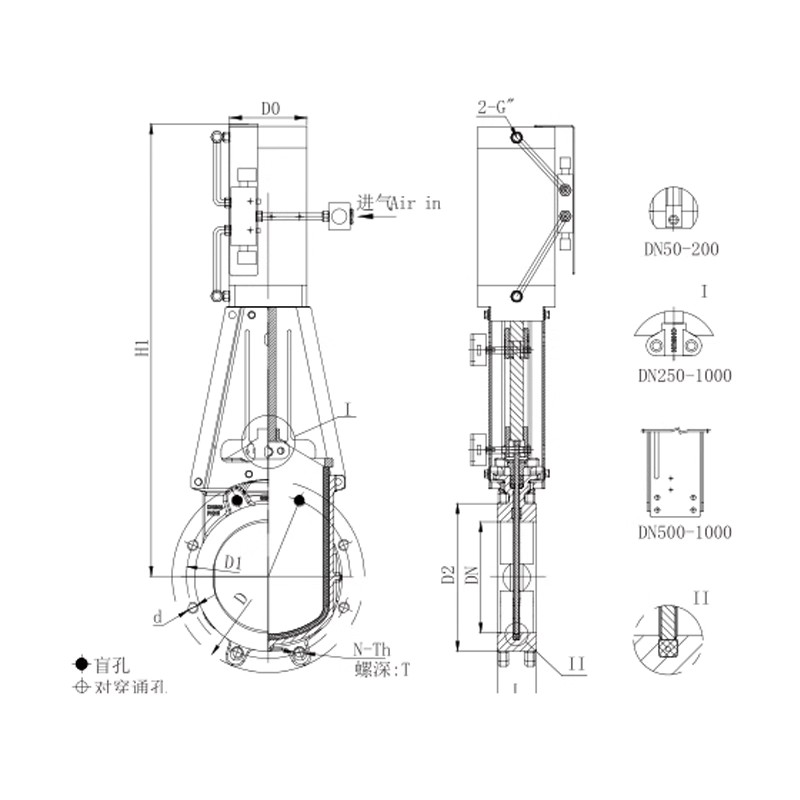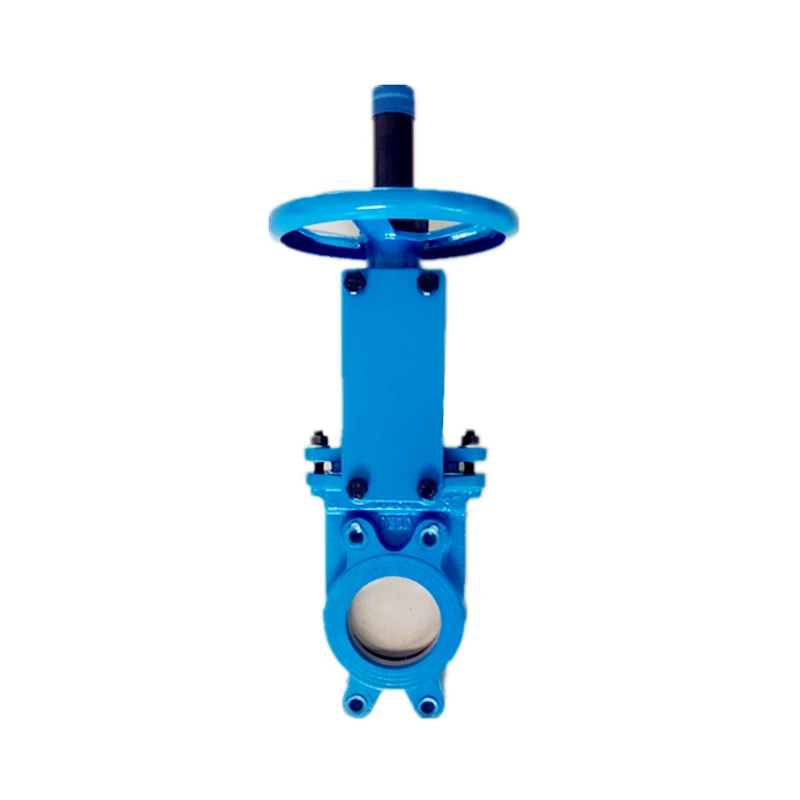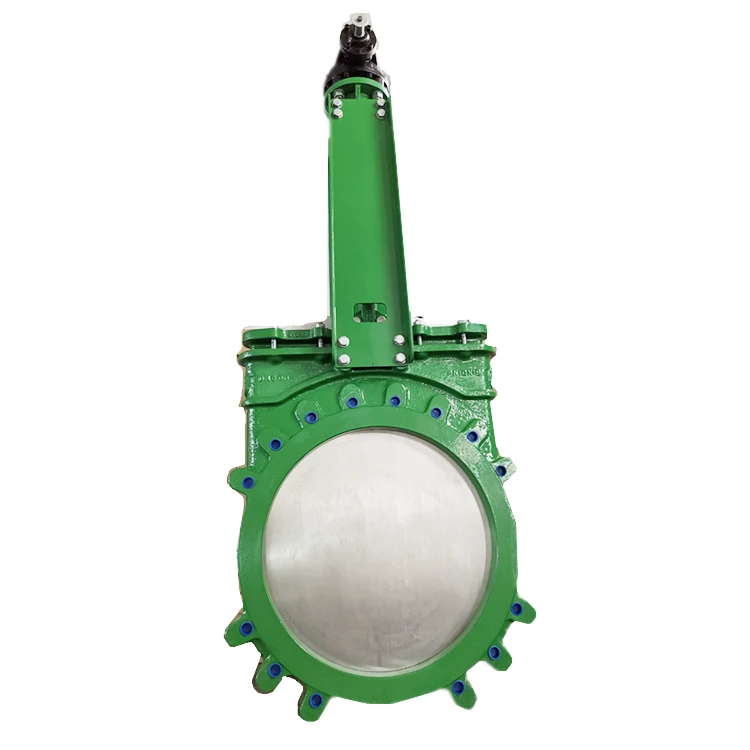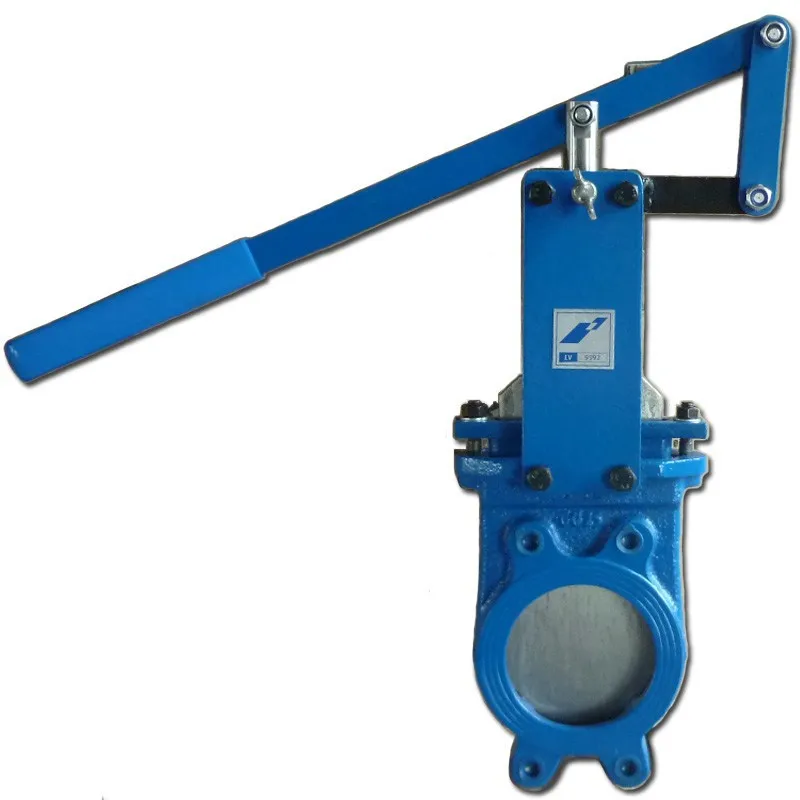Understanding Clarkson and DeZURIK Knife Gate Valves and Distributors
Key Takeaways
Knife gate valves serve a distinct purpose in various industrial applications, notably where the sealing of liquids or slurries is required. Clarkson knife gate valves are recognized for their robust design and reliability, making them ideal for heavy-duty tasks. These valves feature a unique blade that slices through the medium, ensuring a tight seal. In contrast, DeZURIK knife gate valves offer versatility and efficiency across differing operational conditions. Their design caters to both high pressure and low pressure environments, showcasing adaptability in various settings.
The differentiation between gate valves and knife gate valves is critical. While both types manage fluid flow and pressure, knife gate valves excel in quickly isolating flow with minimal resistance. This is particularly advantageous in systems handling viscous fluids or slurries that may clog traditional gate valve paths.
Distributors play a significant role in providing access to these essential components of fluid control systems. Delta knife gate valve distributors and others contribute to the availability of high-quality options within the market. Understanding the characteristics of valve distributors ensures that engineers can secure the best products suited to their project specifications.
Examining CYL knife gate valves, it becomes apparent that their engineering focuses on minimizing wear while maintaining effective shut-off capabilities. The choice amongst these various brands ultimately hinges on specific requirements such as operating environment, medium characteristics, and integration within existing systems.
Understanding the Features of Clarkson Knife Gate Valves
Clarkson knife gate valves are engineered for superior performance in demanding applications. These valves utilize a sharp-edged blade that slices through the flow, which makes them particularly effective for handling slurries, sewage, and other viscous or solid-laden fluids. The design minimizes turbulence and pressure drop, allowing for efficient operation in various industrial settings such as wastewater treatment and chemical processing.
One of the distinctive features of Clarkson knife gate valves is their ability to provide a reliable seal when closed, thanks to their robust construction and precision machined components. This characteristic reduces the risk of leakage and ensures system integrity. The valve's body is typically made from durable materials like cast iron or stainless steel, enhancing resistance to corrosion and wear.
Installation versatility also stands out with Clarkson valves, as they can be configured for both horizontal and vertical orientations depending on process requirements. Maintenance is relatively straightforward due to the accessible design features that allow for easy inspection and servicing without needing to dismantle complex piping systems.
Overall, Clarkson knife gate valves combine functionality with reliability, fulfilling critical roles in various processes by facilitating smooth flow management while maintaining stringent control over system performance. Understanding these features aids in selecting the right valve for specific applications.

Comparing DeZURIK Knife Gate Valves to Standard Gate Valves
DeZURIK knife gate valves stand out due to their specialized design, tailored for particular applications that demand a high level of performance in handling slurries and viscous fluids. Unlike conventional gate valves, which are primarily meant for on-off control in various industries, DeZURIK knife gate valves employ a sharp-edged blade that slices through the media, ensuring minimal disruption. This distinct feature is pivotal when dealing with heavy or abrasive substances that can cause traditional valve types to wear rapidly.
The construction of DeZURIK valves often includes durable materials designed to withstand high pressures and corrosive environments. This engineering ensures longevity and efficiency, significantly reducing maintenance needs when compared to standard gate valves. The lack of pockets within the valve body also allows for complete drainage, which minimizes chances of fluid stagnation—a considerable advantage in sectors like wastewater treatment where hygiene is paramount.
Furthermore, the actuation mechanism can differ greatly between these two valve types. DeZURIK knife gate valves typically use either manual or automated systems optimized for quick operations in harsh conditions. This flexibility can lead to better control over fluid dynamics within a system compared to the often slower response of standard gate valves.
"Choosing the right valve type can significantly impact operational efficiency and safety."
In applications where throughput and reliability are crucial, selecting a DeZURIK knife gate valve could enhance overall performance far beyond what standard options typically offer. Understanding these differences enables industries to make informed choices regarding their fluid control needs.
Exploring the Role of Distributors in the Valve Industry
In the complex landscape of the valve industry, distributors play a critical role in bridging manufacturers and end-users. Clarkson and DeZURIK, recognized names in knife gate valves, depend on their distributors to ensure product accessibility and customer satisfaction. Distributors provide numerous services, including product selection advice, inventory management, and technical support. Their expertise aids clients in navigating various challenges associated with valve selection for specific applications.
The knife gate valve format is particularly advantageous in systems involving slurries or viscous substances due to its ability to provide a tight seal when closed, minimizing leakage during operation. Distributors skilled in this niche can effectively communicate the technical specifications of CYL knife gate valves and other models within their portfolio, empowering clients to select the appropriate solutions for their needs.
A deeper understanding of how different products from various manufacturers compare to standard gate valves is essential for efficient operations. Distributors facilitate this knowledge transfer. They not only distribute products but also contribute valuable insights about variations between gate valves and knife gate valves, heritage brands like Delta bringing additional value through features designed to meet specific industry demands.
Distributor | Product Range | Key Features |
|---|---|---|
Clarkson | Knife Gate Valves | High durability, efficient sealing |
DeZURIK | Knife Gate Valves | Innovative design, compatible with various media |
CYL | Cyl Knife Gate Valves | Lightweight yet strong construction |
Delta | Delta Knife Gate Valves | Versatile applications, low maintenance |
Through ongoing training and support, distributors ensure that customers are informed about best practices for maintaining and operating these crucial components within their systems. The symbiotic relationship between manufacturers like Clarkson and DeZURIK and their distributors enriches the industry with knowledge-sharing mechanisms that benefit all stakeholders involved.
An Overview of CYL and Delta Knife Gate Valves
CYL knife gate valves serve a specialized function in various industrial applications, primarily due to their straightforward design and efficient operation. These valves feature a blade-like disc that effectively cuts through the media flow, making them ideal for handling slurries or solids. The design reduces turbulence and allows for a tighter seal when closed, preventing leakage. This valve type is particularly beneficial in sectors where control over flow is essential but where backflow or blockages can be detrimental to processes.
Delta knife gate valves are another notable variant, recognized for their robust construction and versatility. They are engineered to handle extreme conditions, offering significant operational advantages in terms of reliability. These valves can withstand higher pressures and temperatures compared to standard gate valves, which enhances overall system performance in many demanding environments.
Both CYL and Delta knife gate valves emphasize resilience and efficiency. Their use cases span a wide range of industries including mining, wastewater treatment, and pulp & paper manufacturing. The ability to minimize wear over time is paramount; therefore, selecting the right model based on specific application requirements is crucial to optimize longevity and functionality.
Understanding the specifications of each type provides insight into their applications. Evaluating the differences will empower operators to make informed decisions on implementing the most suitable valve for their operational needs. Proper utilization of CYL and Delta knife gate valves leads to improved workflow efficiency while ensuring minimal maintenance intervention over time.
Conclusion
Understanding the distinct features of Clarkson and DeZURIK knife gate valves is essential for industries that require precise control over fluid and solid flow. The superior design of knife gate valves enables them to handle a wide range of applications effectively, distinguishing them from standard gate valves. When evaluating the choice between these options, factors such as the specific operating environment and the nature of the media being controlled are crucial. Distributors play a pivotal role in ensuring access to high-quality products such as those offered by Delta and CYL suppliers. These distributors not only provide products but also offer valuable technical support to aid in selecting the right valve for each application. As industries continue to evolve, staying informed about advancements in valve technology will enhance operational efficiency and reliability when utilizing products from reputable sources like Clarkson and DeZURIK. Understanding these aspects aids in making informed decisions that optimize performance and ensure long-term success in fluid management systems.
FAQs
What is a knife gate valve?
A knife gate valve is a type of valve designed to efficiently control the flow of liquids and slurries. It features a sharp-edged blade that can cut through thick materials, making it suitable for applications involving viscous fluids.
How does a knife gate valve differ from a standard gate valve?
Knife gate valves utilize a straight blade that slices through the media, while standard gate valves provide a wedge-shaped barrier. The main difference lies in their functionality; knife gate valves excel in handling slurries and solids, while standard gates are used primarily for liquids.
What are the key features of Clarkson knife gate valves?
Clarkson knife gate valves are known for their robust construction, ease of operation, and minimal maintenance requirements. They typically feature an all-metal body, ensuring durability and effective cutting capabilities.
Who are the distributors for DeZURIK knife gate valves?
DeZURIK works with various distributors worldwide to supply their line of knife gate valves. These distributors provide essential support in getting these high-quality products to end users.
What applications are suitable for CYL and Delta knife gate valves?
CYL and Delta knife gate valves are often used in industrial settings where efficiency and reliability are crucial. Their design allows them to handle challenging materials including slurries and waste products effectively.
How can one select the right distributor for knife gate valves?
Choosing the right distributor involves evaluating their reputation, service capabilities, product range, and experience with specific applications related to your needs. Inquiries regarding product availability and support services will assist in making an informed decision.




